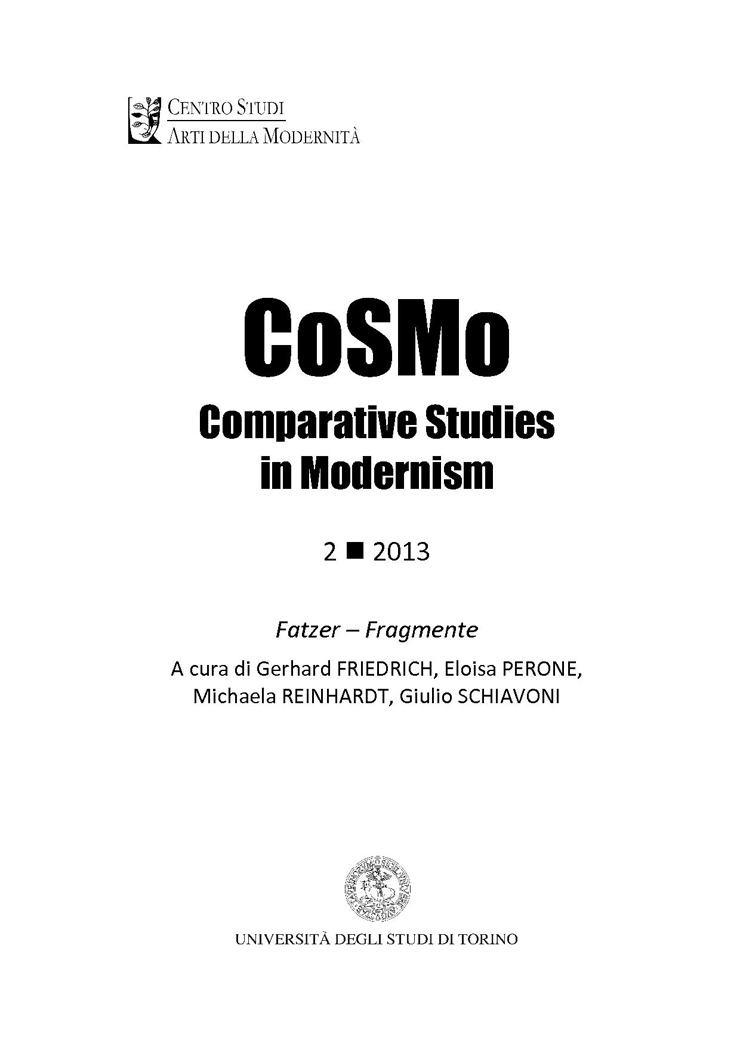Musical Ontology: A View through Improvisation
DOI:
https://doi.org/10.13135/2281-6658/316Keywords:
Philosophy of Music, Musical Ontology, Musical Performance, Improvisation, AestheticsAbstract
A large part of the ontology of music is formalistic and objectivistic: it regards musical works as kinds of objects, whether abstract or concrete, which are to be understood as formal structures. The problem with this view is that this is not enough to explain our musical experience: music is not only heard and understood in terms of objects, facts or structures, but also in terms of events, activities or processes, that take place or occur here and now.
In this paper I will offer a programmatic hint of how musical ontology can accommodate this ordinary intuition. In order to do that, I will take into consideration the practice of musical improvisation. The focus on improvisation, instead of on works, is useful to reshape the discourse of musical ontology in non-formalistic and non-objectivist terms.
Downloads
Downloads
Published
Issue
Section
License
Authors keep the copyrights for their work and give the journal the work’s first publication copyright, which is at the same time licensed under a Creative Commons License – Attribution, which in turn allows other parties to share the work with an acknowledgement of the work's authorship and initial publication in this journal.
Content Licence

You are free to copy, distribute and transmit the work, and to adapt the work. You must attribute the work in the manner specified by the author or licensor (but not in any way that suggests that they endorse you or your use of the work).
Metadata licence

CoSMo published articles metadata are dedicated to the public domain by waiving all publisher's rights to the work worldwide under copyright law, including all related and neighboring rights, to the extent allowed by law.
You can copy, modify, distribute and perform the work, even for commercial purposes, all without asking permission.






